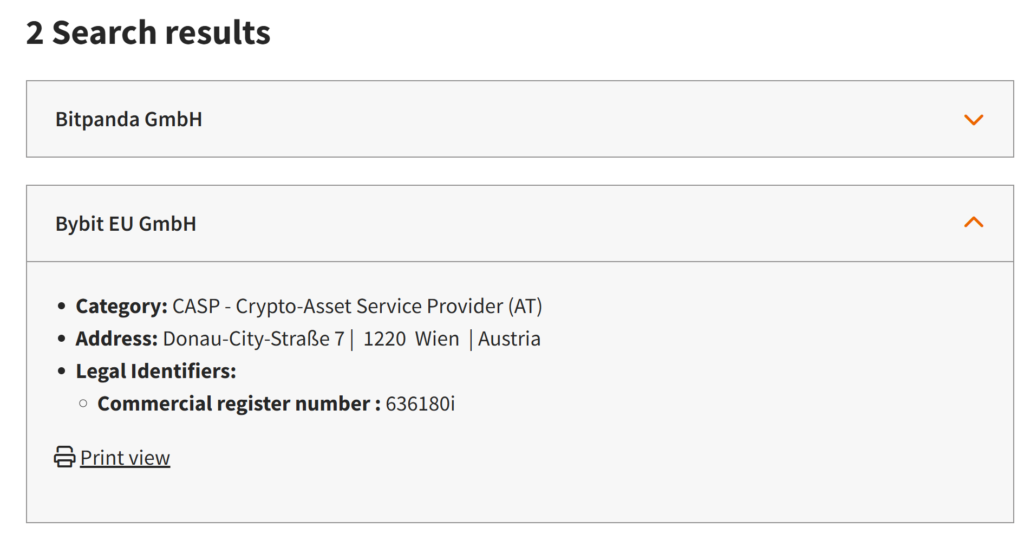Bybit has secured a Markets in Crypto-Assets Regulation (MiCA) license from Austria’s Financial Market Authority (FMA). The license allows the exchange to expand into the European market.
The approval allows Bybit EU, registered under commercial number 636180i, to operate as a regulated crypto asset service provider and offer its services across all 29 countries in the European Economic Area.
Bybit has officially opened its European headquarters in Vienna, Austria, as part of its expansion, according to a news release on May. 29.
Furthermore, the move enables the platform to serve nearly 500 million Europeans under MiCA’s unified rules, which aim to ensure consistent regulations, prevent illegal activities, and protect consumers. The company CEO and co-founder, Ben Zhou, said:
Securing the MiCAR license in Austria is a testament to our compliance-first approach at Bybit .We are actively collaborating with regulators and pursuing licenses globally to ensure our users can access our innovative platform with the highest levels of regulatory and compliance assurance.

Bybit to hire 100+ in Vienna amid EU push
Additionally, Bybit is set to hire over 100 employees in Vienna to strengthen its European operations and deliver crypto services tailored to EU regulations. “Vienna is now the home of Bybit Europe,” said Mazurka Zeng.
The firm also plans to partner with universities across the region through its Blockchain for Good Alliance (BGA) initiative to promote the use of blockchain technology.
The MiCA framework became effective in early 2025, prompting crypto companies to establish regulated operations within the EU. This allows them to expand their services across borders legally.
Bybit recovers after historic $1.5B breach
Founded in 2018 and now based in Dubai, Bybit is the world’s second-largest crypto exchange by trading volume, according to CoinMarketCap. Moreover, the company moved its global headquarters from Singapore to Dubai in 2022.
However, the regulatory win comes after Bybit faced a massive security breach in February 2025. The attack caused a loss of $1.5 billion in assets, marking the largest crypto theft in history.
On May. 9, German law enforcement seized 34 million euros ($38 million) in cryptocurrency from eXch, a crypto platform allegedly used to launder money stolen in the Bybit hack.







